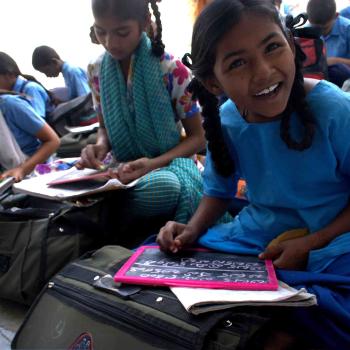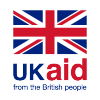
We are pleased to announce the release of the Young Lives school survey data from India and Peru. The data are now available for external researchers to access and use via the UK Data Service.
The Young Lives school survey
A school survey was introduced into Young Lives in 2010, following the third round of the household survey, in order to capture detailed information about children's experiences of schooling. It addressed two main research questions:
- how do the relationships between poverty and child development manifest themselves and impact upon children's educational experiences and outcomes?
- to what extent does children's experience of school reinforce or compensate for disadvantage in terms of child development and poverty?
The survey allows researchers to link longitudinal information on household and child characteristics from the household survey with data on the schools attended by the Young Lives children and children's achievements inside and outside the school.
A wide range of stakeholders, including government representatives at national and sub-national levels, NGOs and donor organisations were involved in the design of the school survey, so the researchers could be sure that the 'right questions' were being asked to address major policy concerns.
The survey provides policy-relevant information on the relationship between child development (and its determinants) and children's experience of school, including access, quality and progression. This combination of household, child and school-level data over time constitutes the comparative advantage of the Young Lives study.
Full datasets and documentation are available from the UK Data Archive:
Young Lives: School Survey, India, 2010-2011 ? reference: SN 7478
Young Lives: School Survey, Peru, 2011 ? reference: SN 7479
Further information is available from the Young Lives school survey webpages.


We are pleased to announce the release of the Young Lives school survey data from India and Peru. The data are now available for external researchers to access and use via the UK Data Service.
The Young Lives school survey
A school survey was introduced into Young Lives in 2010, following the third round of the household survey, in order to capture detailed information about children's experiences of schooling. It addressed two main research questions:
- how do the relationships between poverty and child development manifest themselves and impact upon children's educational experiences and outcomes?
- to what extent does children's experience of school reinforce or compensate for disadvantage in terms of child development and poverty?
The survey allows researchers to link longitudinal information on household and child characteristics from the household survey with data on the schools attended by the Young Lives children and children's achievements inside and outside the school.
A wide range of stakeholders, including government representatives at national and sub-national levels, NGOs and donor organisations were involved in the design of the school survey, so the researchers could be sure that the 'right questions' were being asked to address major policy concerns.
The survey provides policy-relevant information on the relationship between child development (and its determinants) and children's experience of school, including access, quality and progression. This combination of household, child and school-level data over time constitutes the comparative advantage of the Young Lives study.
Full datasets and documentation are available from the UK Data Archive:
Young Lives: School Survey, India, 2010-2011 ? reference: SN 7478
Young Lives: School Survey, Peru, 2011 ? reference: SN 7479
Further information is available from the Young Lives school survey webpages.


